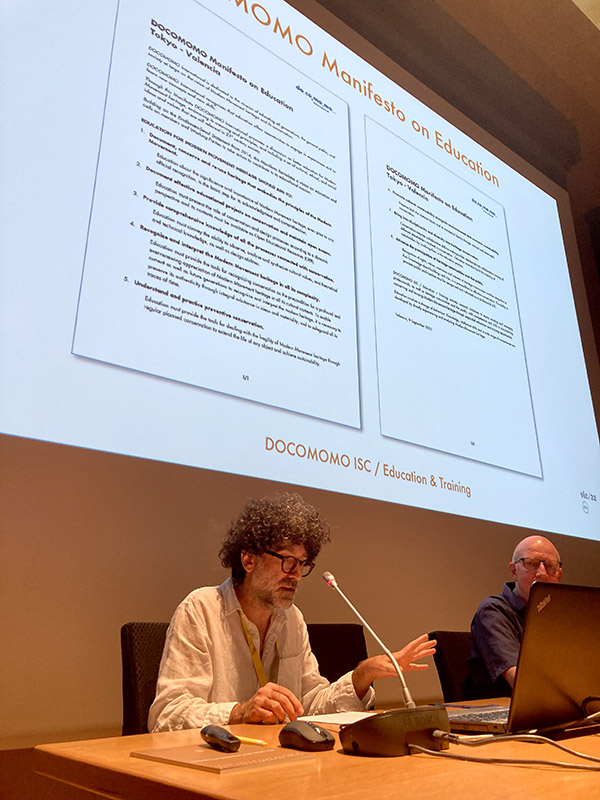DOCOMOMO Manifesto on Education

During the closing ceremony of the 17th International DOCOMOMO Conference in Valencia, the DOCOMOMO Manifesto on Education was presented.
Through this Manifesto, DOCOMOMO promotes a discussion on better education for Modern Movement heritage, embracing its cultural, ethical, and social ideas and values that are still relevant in 21st century society.
The Manifesto formulates a vision on what should be the contents and aims for education and training on the subject. It is an open invitation to all levels of education and to all domains and disciplines related to Modern Movement heritage, to interpret its local implications, to elaborate on it and to implement it in education and training.
The roundtable “Sharing Values of Global Modernities. Towards a DOCOMOMO Education Charter” during the International DOCOMOMO Conference in Tokyo 2020(+1), offered the occasion to start the reflection on the education needed. The DOCOMOMO International Specialists Committee on Education + Training (ISC / E+T), together with a group of experts from different cultural backgrounds took up the challenge bringing the ideas discussed in Tokyo together and shaping the Manifesto into 8 articles.
EDUCATION FOR MODERN MOVEMENT HERITAGE SHOULD AIM TO:
- Document, conserve and re-use heritage that embodies the principles of the Modern Movement.
- Document effective educational projects on conservation and maintain open access.
- Provide comprehensive knowledge of all the processes connected with conservation.
- Recognize and interpret the Modern Movement heritage in all its complexity.
- Understand and practice preventive conservation.
- Promote cultural sustainability alongside environmental and economic sustainability.
- Bring interdisciplinarity and diversity into heritage conservation.
- Advance the participation of heritage communities and the public.
DOCOMOMO Manifesto on Education | Tokyo – Valencia
Valencia, 9 September 2022
Download the DOCOMOMO Manifesto on Education
Preparatory Committee
Andrea Canziani (chair, Italy), Grażyna Hryncewicz-Lamber (secretary, Poland), Wessel de Jonge (editor, The Netherlands), Suha Babikir (Sudan), Cecilia Chu (Hong Kong), Miles Glendinning (Scotland), Kengo Hayashi (Japan), Yasuko Kamei (Japan), Hadi Naderi (Iran), Uta Pottgiesser (Germany), Theo Prudon (USA), Carolina Quiroga (Argentina), Wido Quist (The Netherlands), Junko Taguchi (Japan), Aneta Vasileva (Bulgaria), Yoshiyuki Yamana (Japan)

